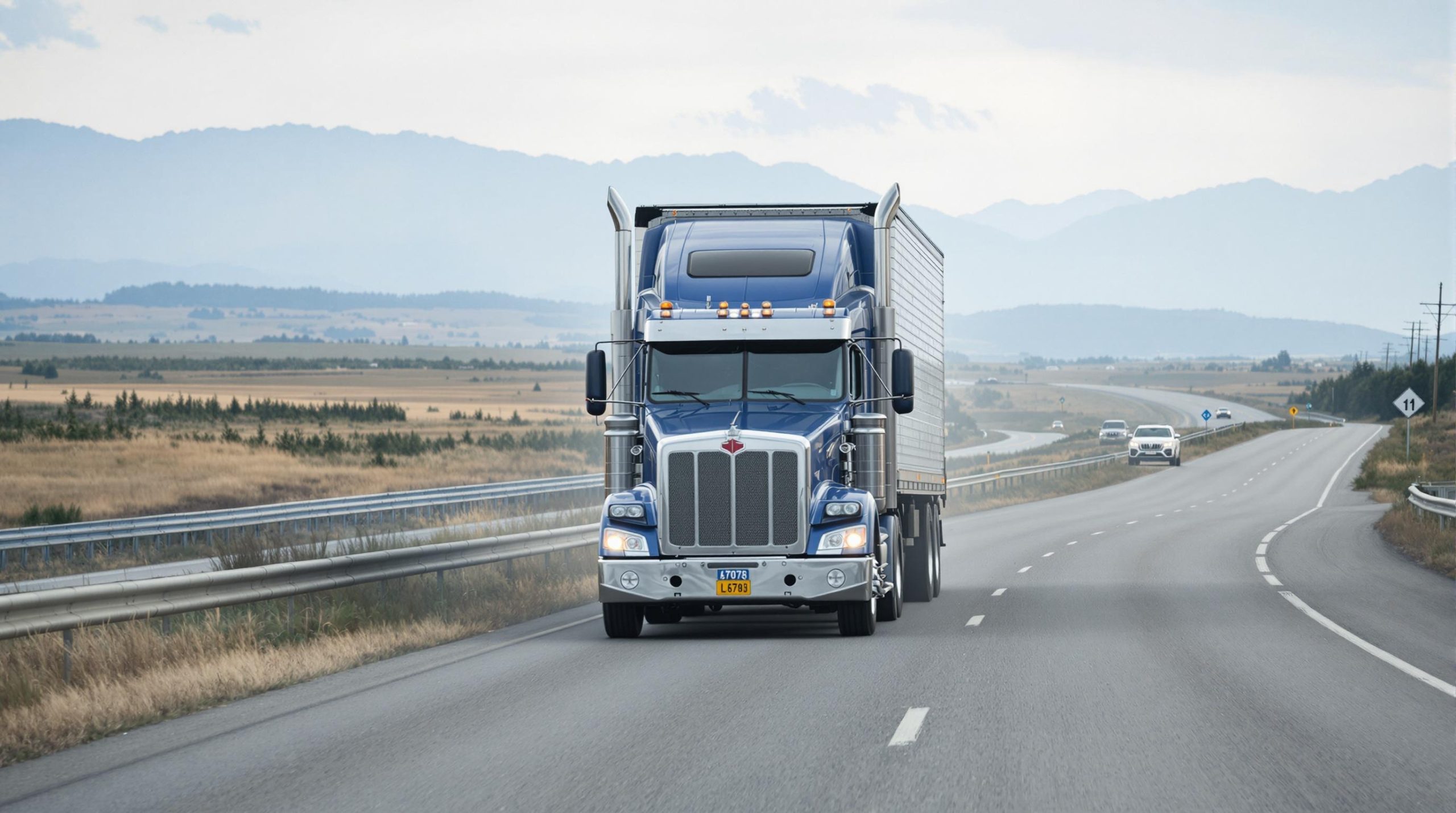Why Safe Trucking Practices Matter for Your Heavy Haul in Rhode Island
Freedom Heavy Haul can offer expedited Pickup and Delivery for any size shipment anywhere in the USA. Contact us today for No Hassle, No Pressure Pricing.
Safe trucking practices are vital for transporting heavy hauls in Rhode Island. Oversized or overweight loads, such as construction machinery or industrial equipment, require careful planning and strict adherence to regulations. These practices ensure public safety, minimize infrastructure damage, and reduce the risk of accidents. For businesses involved in moving heavy freight, understanding these principles is critical to operating responsibly and efficiently.
The Role of Safe Trucking in Heavy Haul Operations
Safe trucking practices ensure the secure and reliable transportation of heavy cargo. They involve multiple components, including regulatory compliance, equipment maintenance, and load securement, all working together to prevent disruptions and hazards.

Understanding Heavy Haul Regulations in Rhode Island
Rhode Island has specific regulations to manage the transport of oversized loads. These include weight restrictions, dimension limits, and mandatory permits. Complying with these rules is essential to avoid fines or accidents and protect public infrastructure.
The Federal Motor Carrier Safety Administration (FMCSA) also provides guidelines for driver qualifications, vehicle safety, and securement techniques. These federal rules complement state regulations, creating a comprehensive framework for safe operations.
Key Components of Safe Trucking Practices
Several interconnected factors contribute to the safe transport of heavy hauls. Each plays a critical role in reducing risks and ensuring the efficient movement of cargo.
Route Planning and Its Importance
Planning the route is a crucial step in heavy haul trucking. Rhode Island’s infrastructure, with its aging bridges, narrow streets, and congested areas, requires careful consideration. Selecting appropriate roads minimizes the chances of accidents, delays, or damage to infrastructure.
Weather is another important factor, as Rhode Island’s coastal climate can lead to unpredictable storms or winds. Effective planning ensures the selected route accommodates the load’s size and weight while avoiding potential hazards.
Maintenance of Trucks and Specialized Equipment
Regular vehicle inspections are necessary for safe heavy haul operations. Trucks and trailers must be in excellent condition to handle oversized loads. Pre-trip inspections of tires, brakes, lights, and other systems reduce the likelihood of mechanical failures.
Specialized equipment, such as lowboy trailers and removable goosenecks, often requires additional maintenance. Proper care ensures these tools function correctly, preventing accidents and avoiding costly delays.
The Human Element: Driver Training and Experience
Experienced and well-trained drivers are key to safe heavy haul operations. They possess the skills needed to handle oversized loads in complex environments, such as Rhode Island’s narrow urban roads or winding rural highways.

The Importance of Driver Awareness
Heavy haul drivers must be alert and aware to navigate challenging routes and maintain control over their vehicles. Fatigue management is essential to prevent accidents, and compliance with hours-of-service regulations helps ensure drivers are rested and focused.
Driver training programs often emphasize specialized techniques for transporting heavy loads, including handling emergencies and using advanced securement methods. This expertise is critical to minimizing risks during transportation.
Securement of Heavy Loads
Properly securing heavy loads is one of the most critical aspects of safe trucking. A secured load prevents shifting during transit, reducing the risk of accidents and protecting the cargo from damage.
Techniques for Safe Load Securement
Heavy haul trucking relies on equipment such as chains, straps, and binders to secure loads. The securement method depends on the type of cargo, with unevenly distributed loads requiring additional measures to maintain stability.
The FMCSA provides detailed guidelines on load securement, including the number of tie-downs required and their minimum strength. Following these rules ensures cargo remains secure throughout the journey.
Why Safety Practices Are Essential
Safe trucking practices are not just a legal requirement; they also contribute to the overall efficiency and reliability of heavy haul operations. They protect the public, prevent accidents, and reduce the impact on infrastructure.

Preventing Accidents on the Road
Oversized loads can pose significant risks to other road users. Without proper securement, route planning, or driver vigilance, heavy haul trucks can cause severe accidents. By prioritizing safety, companies reduce these risks and ensure safer roads.
Preserving Infrastructure
Rhode Island’s roads and bridges are vulnerable to damage from overweight trucks. Following approved routes and adhering to weight limits help preserve these structures, reducing the need for costly repairs and ensuring smoother transportation for all vehicles.
Maintaining Operational Efficiency
Safe practices minimize delays caused by accidents, mechanical failures, or regulatory violations. This reliability benefits businesses that depend on timely delivery of heavy equipment and materials.
Examples of Safe Practices in Action
Real-world examples highlight the impact of adhering to safe trucking practices.
A Successful Heavy Haul in Rhode Island
A trucking company successfully transported a large industrial generator across Rhode Island by focusing on safety. They planned a route that avoided low-clearance bridges, used well-maintained equipment, and relied on skilled drivers. The load arrived on time and without incident.
Consequences of Neglecting Safety
In 2015, a truck carrying an oversized load caused structural damage to a bridge in Rhode Island. This incident disrupted traffic and led to expensive repairs, underscoring the importance of compliance with route planning and weight limits.
Summary
Safe trucking practices are essential for the successful transport of heavy hauls in Rhode Island. These practices protect public safety, preserve infrastructure, and ensure efficient operations. By prioritizing route planning, vehicle maintenance, driver expertise, and load securement, trucking companies can meet both regulatory requirements and the demands of their clients effectively. Prioritizing safety benefits not only the trucking industry but also the communities that rely on these services.







